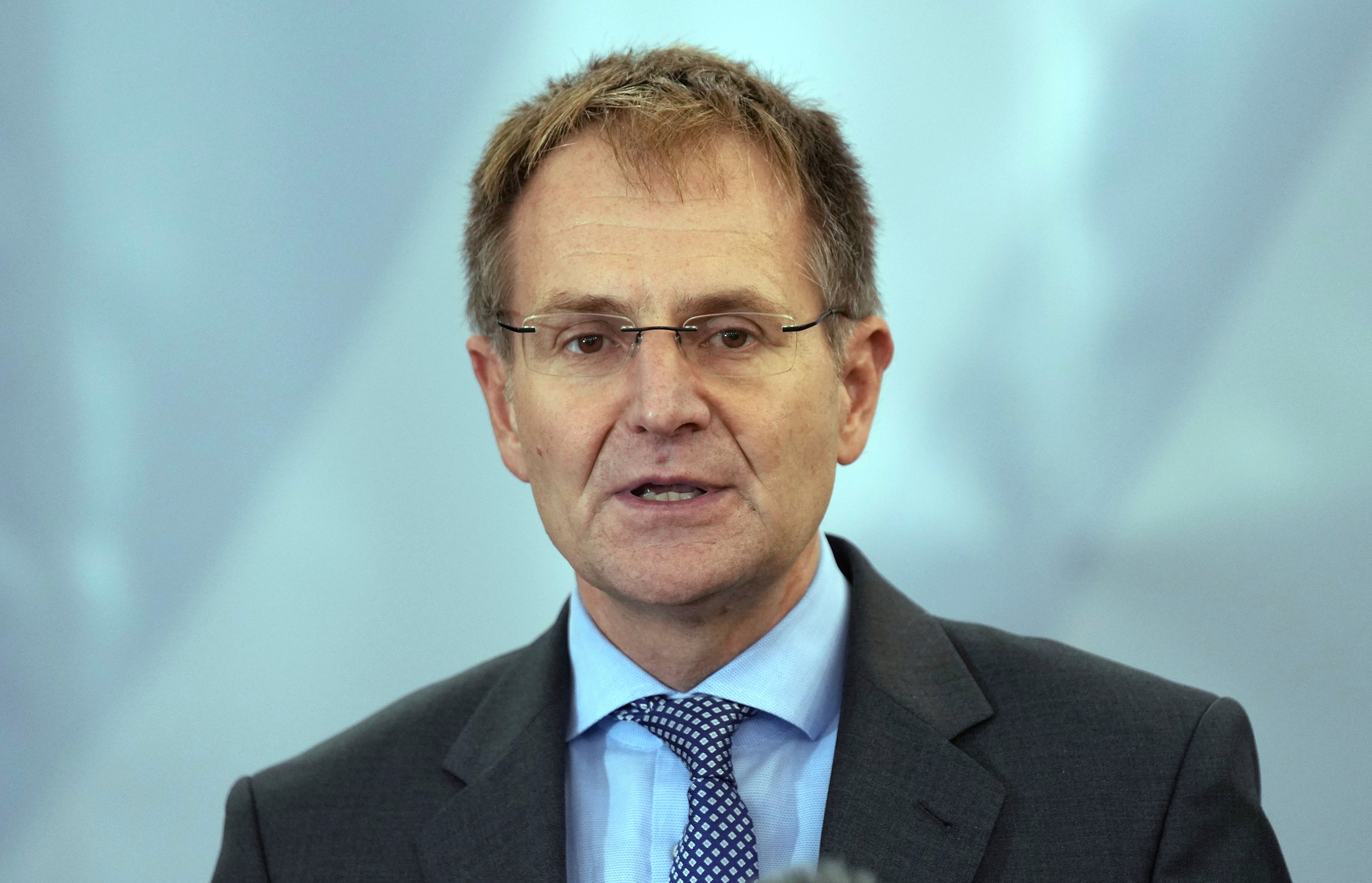Germany's top prosecutor files motion for asset forfeiture of $789 million of frozen Russian money
Germany’s federal prosecutor has filed a motion for asset forfeiture concerning more than 720 million euros or $789 million of frozen Russian money

Your support helps us to tell the story
From reproductive rights to climate change to Big Tech, The Independent is on the ground when the story is developing. Whether it's investigating the financials of Elon Musk's pro-Trump PAC or producing our latest documentary, 'The A Word', which shines a light on the American women fighting for reproductive rights, we know how important it is to parse out the facts from the messaging.
At such a critical moment in US history, we need reporters on the ground. Your donation allows us to keep sending journalists to speak to both sides of the story.
The Independent is trusted by Americans across the entire political spectrum. And unlike many other quality news outlets, we choose not to lock Americans out of our reporting and analysis with paywalls. We believe quality journalism should be available to everyone, paid for by those who can afford it.
Your support makes all the difference.Germany's federal prosecutor has filed a motion for asset forfeiture concerning more than 720 million euros ($789 million) of frozen Russian money.
The prosecutor's office said Wednesday that the aim of the motion, which was filed on July 7, is to seize the money deposited by a Russian financial institution in a Frankfurt bank account because of a suspected attempt to violate embargo regulations, which is criminalized under the German Foreign Trade and Payments Act.
Since Russia’s full-scale invasion of Ukraine on Feb. 24, 2022, the European Union has imposed various sanctions and restrictions on Russia. The measures have targeted the energy sector, banks, companies and markets, and made more than 1,000 Russian officials subject to asset freezes and travel bans.
According to a report on news site Spiegel Online, the federal prosecutor’s office wants the frozen funds to go into state coffers.
In June 2022, the Council of the European Union listed the Russian financial institution, which wasn't explicitly named in the prosecutor's statement, in the so-called Russia Embargo Order. As a consequence, any assets of the entity deposited with European financial institutions could no longer be subject to transactions, but were “frozen.”
Shortly after the listing, unknown individuals acting on behalf of the Russian financial institution attempted to deduct more than 720 million euros from its account at a bank in Frankfurt, but the bank didn't execute the electronic transfer order, the prosecutor's office in Karlsruhe said.
The prosecutor's motion was filed before the state security chamber of the higher regional court in Frankfurt.
The German customs criminal investigation office, or Zollkriminalamt, was tasked with investigations.
“Independent confiscation is being requested as it is currently impossible to prosecute specific individuals for the offence at issue,” the prosecutor's office wrote.